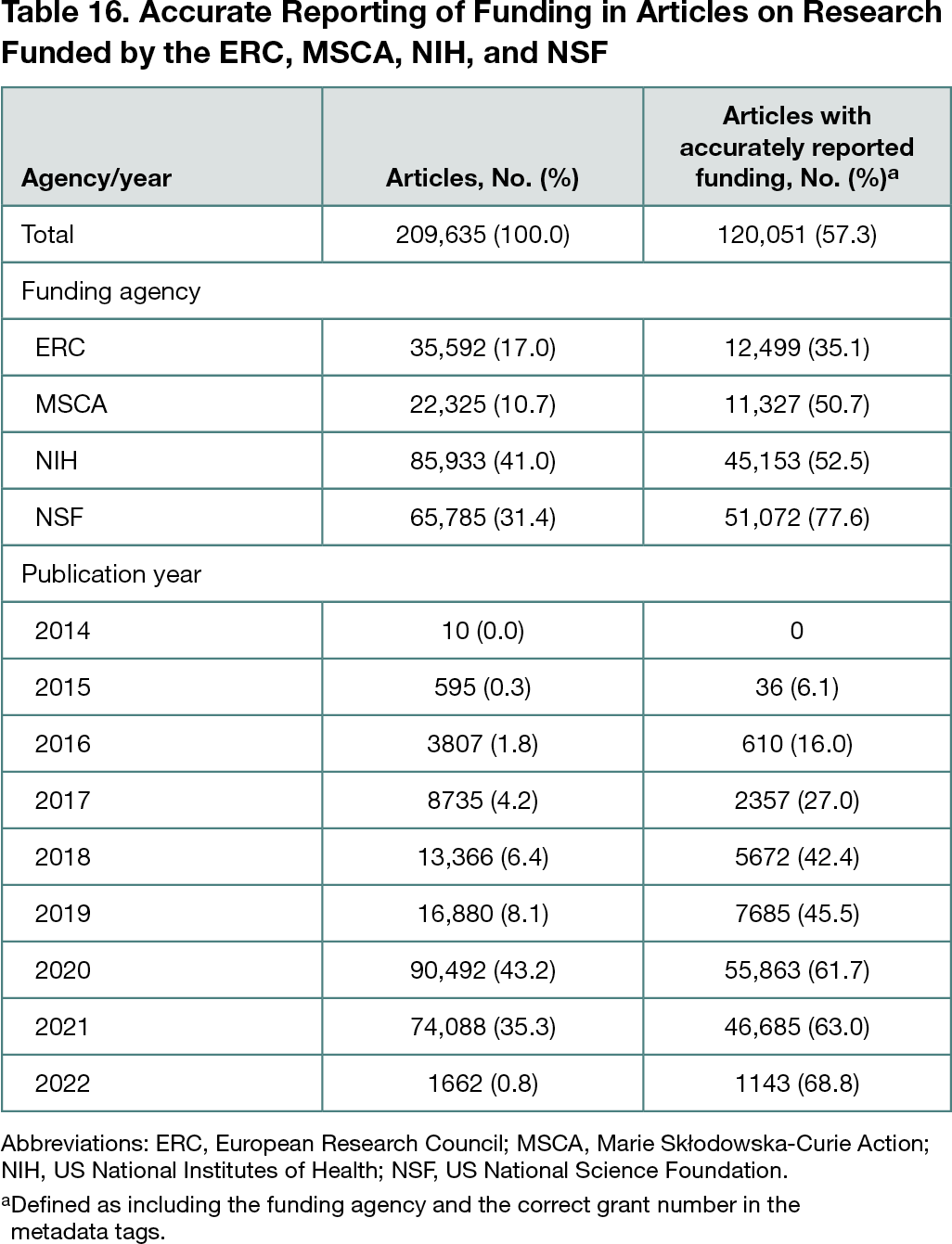Abstract
Funding Reporting Compliance in Metadata of Published Articles Supported by European and US Research Grants
Antonija Mijatović,1 David G. Pina,2 Ivan Buljan,1 Ana Marušić1
Objective
Inadequate compliance with reporting of findings in research articles may reduce the transparency of the published research and may negatively affect the ability of research funders to properly identify the body of knowledge associated with their grants. This investigation explored whether research funding was properly reported in publications by grant beneficiaries funded by the European Horizon (H2020) program (2014-2020) in comparison with those funded by the US National Institutes of Health (NIH) or the US National Science Foundation (NSF) during the same time period.
Design
In this observational study, DOIs for publications from H2020 grants were identified using the official portal for European data. Data were collected from 2 funding programs, the Marie Skłodowska-Curie Actions (MSCA) and the European Research Council (ERC). The NIH grants were identified in PubMed, and NSF grants were found using the NSF Public Access Repository. Metadata were retrieved from Scopus using an application programming interface. The main outcome measure was the percentage of articles with correct textual funding declarations listed in the JavaScript Object Notation fundText metadata tags. Funding declarations were considered correct (accurate) if they contained the information on the funding agency and the correct grant number. For example, for ERC-funded articles, the funding declaration was deemed accurate if it contained (1) European Research Council or ERC, (2) Horizon 2020 or H2020, and (3) the correct grant number.
Results
Of the 209,635 retrieved articles, 57.3% had accurately reported their funding (Table 16). The accuracy for NSF-funded articles was the highest, and that for MSCA and NIH-funded articles was higher than for ERC-funded articles (χ2 = 19,455.80; P < .001). The reporting accuracy of funding improved during the study years (χ2 = 10,553.71; P < .001). In logistic analysis, reporting accuracy was better for articles with a greater number of funding agencies (odds ratio [OR], 1.16; 95% CI, 1.16-1.17), smaller number of authors (OR, 0.94; 95% CI, 0.93-0.94), and later publication years (OR, 1.57; 95% CI, 1.55-1.58).
Conclusions
Approximately half of the research articles supported by major funding agencies had adequate reporting of research funding. Research groups with fewer authors and those with more funding were better at adequate reporting. The accuracy of funding reporting improved over the years but was still suboptimal. Additional instructions and tools may be necessary to ensure that funding recipients properly acknowledge funding sources in their publications.
1Department of Research in Biomedicine and Health, Center for Evidence-Based Medicine, University of Split School of Medicine, Split, Croatia, antonija.mijatovic@mefst.hr; 2European Research Executive Agency, European Commission, Brussels, Belgium
Conflict of Interest Disclosures
Ana Marušić occasionally serves as an expert for the European Research Executive Agency. Ana Marušić is a member of the Peer Review Congress Advisory Board but was not involved in the review or decision for this abstract.
Funding/Support
This study was funded by the Croatian Science Foundation program, Professionalism in Health—Decision-making in Practice and Research (No. IP-2019-04-4882).
Role of the Funder/Sponsor
The funders had no role in the study design, data collection and analysis, decision to publish, or preparation of the manuscript.
Additional Information
All views expressed in this abstract are strictly those of the authors and may in no circumstances be regarded as an official position of the European Research Executive Agency or the European Commission.

